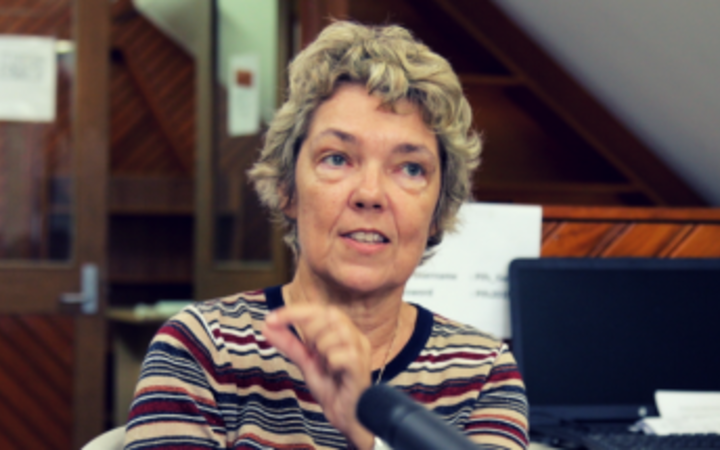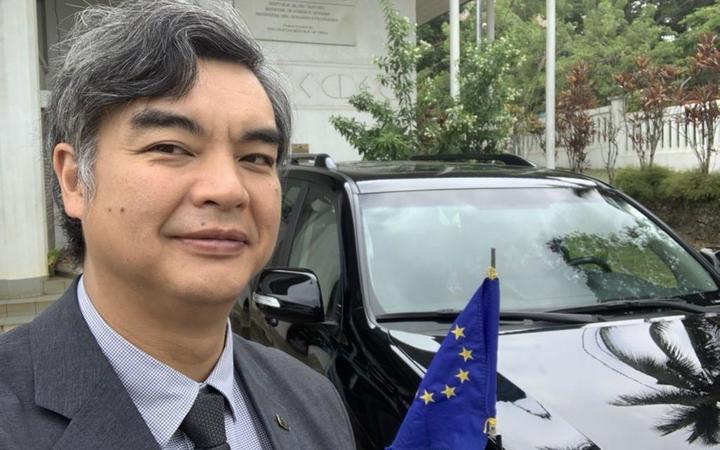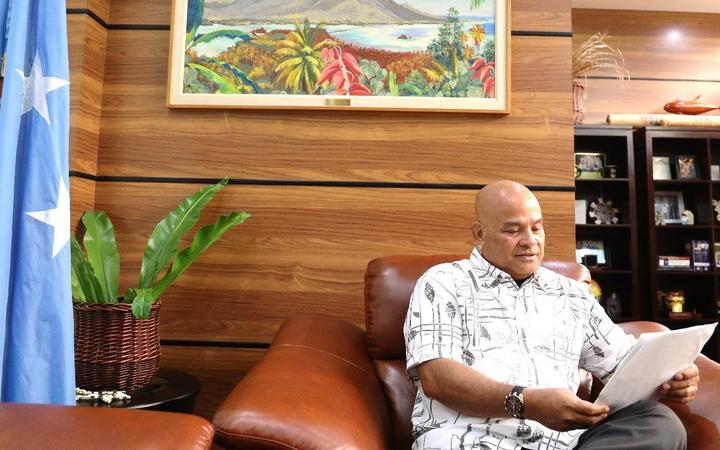
The invasion of Ukraine is likely to have a signficant impact on the Pacific, warns a senior USP academic.
On Thursday, Russia launched a massive invasion of neighbouring Ukraine.
More than 100 Ukrainian soldiers and civilians have been killed in the fighting so far, with no figures for the Russians.
- READ MORE: New Zealand’s reaction: PM condemns Russia’s Ukraine invasion which will claim many ‘innocent lives’
- Australian PM imposes sanctions on Russia – world reacts
- Putin ‘will not stop at Ukraine’ – NZ protesters condemn Russian invasion
The invasion has put a strain on diplomacy around the world, with both Australia and New Zealand imposing sanctions on Russia and protesters picketed the Russian embassy in the capital Wellington on Friday.
Although geographically removed from the conflict the Pacific Nations should be concerned about the negative effect this war will have on multilateralism says Sandra Tarte, an Associate Professor at the University of the South Pacific and the Acting Head of the School for Law and Social Sciences.
“Multilateralism is on its knees, it’s in tatters,” Professor Tarte said. “Particularly for the smaller island countries, we really need multilateralism to protect ourselves.
“We don’t have power as such in the entire system. We rely on multilateralism and institutions like the UN and the rule of law.”
Professor Tarte also said that Pacific countries would feel an economic impact.
“We will see perhaps markets react, we will see confidence plummet,” she explained . “There might be supply chain issues with the oil markets.

“We are all connected. Through this global supply chain, we will see potential effects.”
EU targets Russian economy
The European Union leaders agreed on Thursday to impose new economic sanctions on Russia, joining the United States and Britain in admonishing President Vladimir Putin and his allies for invading Ukraine.
Leaders of the 27-nation bloc lambasted Putin at an emergency summit in Brussels, describing him as “a deluded autocrat creating misery for millions”.
The EU will freeze Russian assets in the bloc and halt its banks’ access to European financial markets.
These moves are part of what EU foreign policy chief Josep Borrell described as “the harshest package of sanctions we have ever implemented”.
The EU’s Ambassador to the Pacific, Sujiro Seam, echoed the sentiments of world leaders and “condemned the unprovoked and unjustified military actions” of Russia.
This is a gross violation of international law, Seam said, and he stated that the EU Office in Suva would reach out to its partners in the region to condemn Russia’s actions.
Seam hoped that Fiji, which had championed multilateralism in the United Nations, would support sanctions against Russia.

FSM severs diplomatic relations with Russia
The Federated of the Micronesia has severed diplomatic relations with Russia following the brutal invasion of Ukraine.

In a statement, the FSM government said it condemned the Russian Federation’s invasion of Ukraine and the unjustified and brutal assault on its people and territory.
President David Panuelo said the FSM condemned any actions which threatened global peace and stability and the rules-based international order.
He said the FSM would only entertain renewing diplomatic relations with the Russian Federation when the latter demonstrated actionable commitments to peace, friendship, cooperation, and love in common humanity.
Fiji condemns Russia’s actions
Fiji has joined the international community in condemning the Russian invasion of Ukraine.
In a Friday social media post, Fiji’s Acting Prime Minister Aiyaz Sayed-Khaiyum said that Fijians were praying for the people of Ukraine.
He called for an end to all the “hostilities and any violations of the international rule of law”.
Sayed-Khaiyum urged the warring parties to return to the diplomatic table, echoing the call for peace from UN Secretary-General António Guterres.
Guterres addressed the UN General Assembly calling for negotiations, to save the people of Ukraine from the scourge of war.
Fiji’s Permanent Representative to the United Nations, Satyendra Prasad, echoed his government’s support of the UN’s call for a de-escalation of conflict.
On his official Twitter account, Prasad stated that Fiji supported the “UN’s efforts to have a swift return to the path of dialogue between the two warring nations”.
This article is republished under a community partnership agreement with RNZ.













































